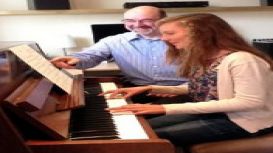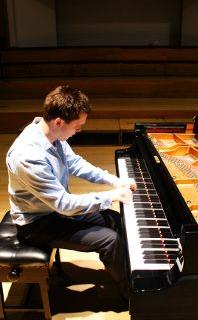
About the Business
I have been teaching people to play the piano since 1977 and in that time have helped hundreds of people to improve their music-making. Most students play ‘just for pleasure’, but quite a number have gone on to be professional musicians in various parts of the music business as performers, composers and teachers.
I also work as a church organist and am an examiner (grades and diplomas) for the Associated Board of the Royal Schools of Music. I am a Fellow of the Incorporated Society of Musicians (ISM) - the musicians’ professional body.
I am a licentiate and graduate of Trinity College of Music, London (LTCL and GTCL), with a basis of traditional musical knowledge and keyboard technique. In the past I have worked professionally with dance bands, playing bass guitar, electric piano and synths and spent some time in studio work, so I also have an interest in and some knowledge of contemporary music. I believe this breadth of musical interest is desirable in any musician and I encourage pupils to work at music from many different periods and various traditions.
I hold a current DBS check certificate obtained in connection with my work as an ABRSM examiner.
Business Services

Why learn piano?
If you're considering taking piano lessons, it's obviously in your mind that you would like to play the piano well - and that's a great thing to do. Take on the challenge and you'll find that whatever style of music you like there's a huge repertoire to explore. From the Baroque, via the Classics, the Romantics and Jazz right up to the present, composers have always been fascinated by the 'one-person orchestra.' With a little technical confidence you can also join in with another pianist or with other instruments. We'll set achievable goals and after a few months you'll be surprised by how much progress you've made, whatever your starting-point.
Location & Hours

1 Parkwood, Polmorla Road
Write a Review
-
Email Address
-
Office
Keith Rusling
-
Get Directions
1 Parkwood, Polmorla Road, Wadebridge, PL27 7JU
-
Phone
Recently Viewed Listing
Casey Greene
An intoxicating blend of hythm, melody and harmony. Tunes from Hilton ...


